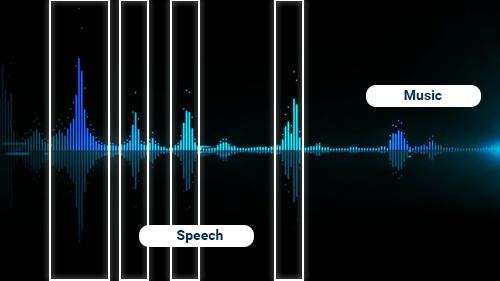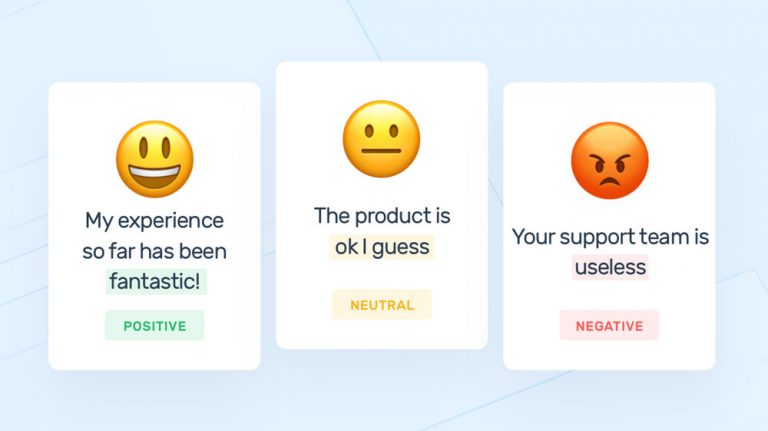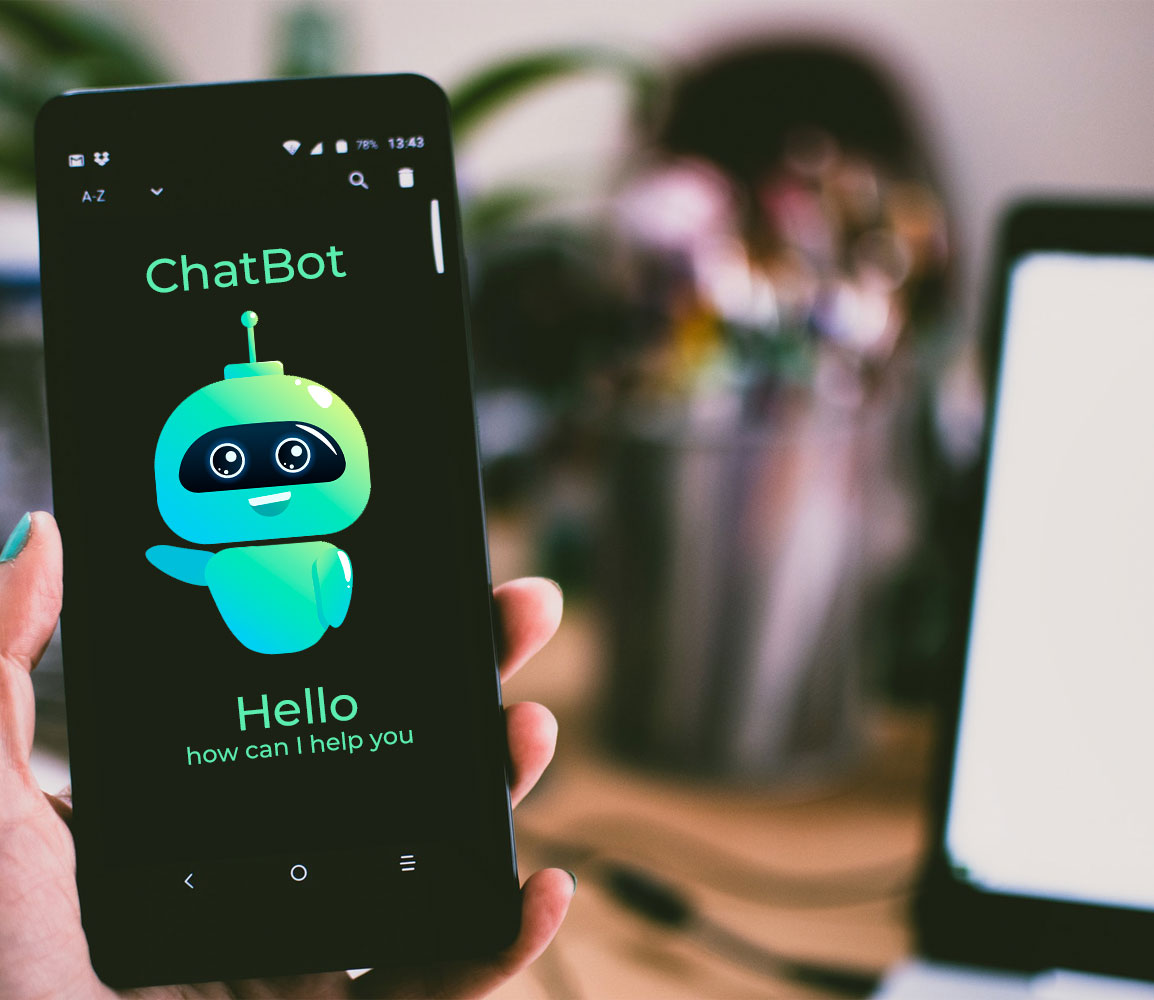We Use Cookies
This website uses cookies to ensure you get the best experience on our website.
Garner valuable insights from images, videos, sensors and geospatial data to discover endless possibilities using Artificial Intelligence and Machine Learning.
Meticulously label/annotate different types and size of images with precise capturing tools to make it recognizable for machines.
Annotate 2D and 3D patterns in running images and account for all moving objects in a video frame to train a wide range of ML models.
Bring together inputs from multiple sensors and disparate sources such as Radars, LiDARs, and Cameras to develop a single model of the surroundings of an object/vehicle.
Power autonomous vehicles, drones, and other computer vision applications to enable accurate interpretation of images and video using high-quality datasets.
Garner valuable insights from images, videos, sensors and geospatial data to discover endless possibilities using Artificial Intelligence and Machine Learning.
NextWealth’s NLP capabilities in audio and text can help enterprises in query/content understanding as well as improve both user experience and insight discovery.
Make texts comprehensible to machines by identifying important keywords, classifying, and tagging texts within the predetermined set of categories to enable virtual assistants/chatbots etc to easily understand the texts multiple dialects and languages.
ML models require annotated audio to make sound more comprehensible for chatbots or virtual assistant devices. By providing audio annotation service to recorded sounds or speech, NextWealth adds metadata to make the human – machine interaction more meaningful.
NextWealth’s NLP capabilities in audio and text can help enterprises in query/content understanding as well as improve both user experience and insight discovery.
AI has helped the eCommerce industry maintain its dynamic operations to ensure a seamless customer experience. Craft smart and digitally focussed customer experiences that demand quality and are strategically lean towards transformational growth.
Identify and replace incomplete, inaccurate, irrelevant, and complex data and records.
AI has helped the eCommerce industry maintain its dynamic operations to ensure a seamless customer experience. Craft smart and digitally focussed customer experiences that demand quality and are strategically lean towards transformational growth.
BPO Outsourcing offers businesses the flexibility to scale their operations up or down, accelerate growth and improve the bottom line while keeping customers satisfied.
Digital CX involves handling the interactions of customers with businesses across their physical and digital touchpoints delivering customer experience that retains the customer’s loyalty and trust in the brand.
Back-office services refer to those non-core activities ranging from document verification and data entry to financial and accounting processes, medical coding and billing to identity verification services to achieve greater accuracy, agility, and responsiveness.
BPO Outsourcing offers businesses the flexibility to scale their operations up or down, accelerate growth and improve the bottom line while keeping customers satisfied.
BPO Outsourcing offers businesses the flexibility to scale their operations up or down, accelerate growth and improve the bottom line while keeping customers satisfied.
BPO Outsourcing offers businesses the flexibility to scale their operations up or down, accelerate growth and improve the bottom line while keeping customers satisfied.
NextWealth is a social impact organization providing world-class AI/ML data services, digital customer experience and IT/BPM services to customers globally.
NextWealth was founded by Wipro veterans – Dr. Sridhar Mitta, Mr. Anand Talwai and Ms. Mythily Ramesh with the purpose of providing jobs to graduates in small towns, focussing on women.
NextWealth has eleven delivery centers – Mallasamudram, Chittoor, Hubballi, Bhilai, Mysore, Vellore, Puducherry, Salem, Jaipur, Udaipur and Kumbakonam employing more than 4,500 small town graduates
NextWealth, with its unique distributed delivery model, has succeeded in bringing hi-tech employment to small towns, making a difference in peoples’ life, thus creating a social impact.
At NextWealth, we live and breathe our values every single day. Our core values are integrity, excellence in work, respect for every individual, commitment to commitment and being socially responsible.
NextWealth is a social impact organization providing world-class AI/ML data services, digital customer experience and IT/BPM services to customers globally.
There is something for everyone here at NextWealth, whether you are a data scientist, operations head, CFO, research person, machine learning enthusiast or students looking for information.
Check out our latest videos on our purpose, domain capabilities, use-cases, customer testimonials, social impact stories and many more.
Learn how NextWealth has been a thinking partner to its clients across AI/ML, eCommerce, BFSI, Healthcare and other industries.
NextWealth’s team of domain experts share their knowledge on trending topics such as Active Learning, Natural Language Processing, Employee Inner Wellbeing, etc helping us be up to date.
Check out NextWealth’s latest news, awards, accolades and achievements here.
There is something for everyone here at NextWealth, whether you are a data scientist, operations head, CFO, research person, machine learning enthusiast or students looking for information.
The NextWealth Partner Ecosystem helps create unique winning partnerships that offer mutual business growth opportunities and joint value, driven by collaboration, executive commitment and thought leadership.
NextWealth values all its partners who help us integrate systems, maintain ecosystem, resellers and annotation partners.
NextWealth has culture codes in place which help both partners and the inhouse team to work in a conducive environment to achieve goals as a team.
NextWealth has all the possible questions right here to clear all your doubts to build a trust even before we start the engagement.
The NextWealth Partner Ecosystem helps create unique winning partnerships that offer mutual business growth opportunities and joint value, driven by collaboration, executive commitment and thought leadership.
Garner valuable insights from images, videos, sensors and geospatial data to discover endless possibilities using Artificial Intelligence and Machine Learning.
Meticulously label/annotate different types and size of images with precise capturing tools to make it recognizable for machines.
Annotate 2D and 3D patterns in running images and account for all moving objects in a video frame to train a wide range of ML models.
Bring together inputs from multiple sensors and disparate sources such as Radars, LiDARs, and Cameras to develop a single model of the surroundings of an object/vehicle.
Power autonomous vehicles, drones, and other computer vision applications to enable accurate interpretation of images and video using high-quality datasets.
Garner valuable insights from images, videos, sensors and geospatial data to discover endless possibilities using Artificial Intelligence and Machine Learning.
NextWealth’s NLP capabilities in audio and text can help enterprises in query/content understanding as well as improve both user experience and insight discovery.
Make texts comprehensible to machines by identifying important keywords, classifying, and tagging texts within the predetermined set of categories to enable virtual assistants/chatbots etc to easily understand the texts multiple dialects and languages.
ML models require annotated audio to make sound more comprehensible for chatbots or virtual assistant devices. By providing audio annotation service to recorded sounds or speech, NextWealth adds metadata to make the human – machine interaction more meaningful.
NextWealth’s NLP capabilities in audio and text can help enterprises in query/content understanding as well as improve both user experience and insight discovery.
AI has helped the eCommerce industry maintain its dynamic operations to ensure a seamless customer experience. Craft smart and digitally focussed customer experiences that demand quality and are strategically lean towards transformational growth.
Identify and replace incomplete, inaccurate, irrelevant, and complex data and records.
AI has helped the eCommerce industry maintain its dynamic operations to ensure a seamless customer experience. Craft smart and digitally focussed customer experiences that demand quality and are strategically lean towards transformational growth.
BPO Outsourcing offers businesses the flexibility to scale their operations up or down, accelerate growth and improve the bottom line while keeping customers satisfied.
Digital CX involves handling the interactions of customers with businesses across their physical and digital touchpoints delivering customer experience that retains the customer’s loyalty and trust in the brand.
Back-office services refer to those non-core activities ranging from document verification and data entry to financial and accounting processes, medical coding and billing to identity verification services to achieve greater accuracy, agility, and responsiveness.
BPO Outsourcing offers businesses the flexibility to scale their operations up or down, accelerate growth and improve the bottom line while keeping customers satisfied.
BPO Outsourcing offers businesses the flexibility to scale their operations up or down, accelerate growth and improve the bottom line while keeping customers satisfied.
BPO Outsourcing offers businesses the flexibility to scale their operations up or down, accelerate growth and improve the bottom line while keeping customers satisfied.
NextWealth is a social impact organization providing world-class AI/ML data services, digital customer experience and IT/BPM services to customers globally.
NextWealth was founded by Wipro veterans – Dr. Sridhar Mitta, Mr. Anand Talwai and Ms. Mythily Ramesh with the purpose of providing jobs to graduates in small towns, focussing on women.
NextWealth has eleven delivery centers – Mallasamudram, Chittoor, Hubballi, Bhilai, Mysore, Vellore, Puducherry, Salem, Jaipur, Udaipur and Kumbakonam employing more than 4,500 small town graduates
NextWealth, with its unique distributed delivery model, has succeeded in bringing hi-tech employment to small towns, making a difference in peoples’ life, thus creating a social impact.
At NextWealth, we live and breathe our values every single day. Our core values are integrity, excellence in work, respect for every individual, commitment to commitment and being socially responsible.
NextWealth is a social impact organization providing world-class AI/ML data services, digital customer experience and IT/BPM services to customers globally.
There is something for everyone here at NextWealth, whether you are a data scientist, operations head, CFO, research person, machine learning enthusiast or students looking for information.
Check out our latest videos on our purpose, domain capabilities, use-cases, customer testimonials, social impact stories and many more.
Learn how NextWealth has been a thinking partner to its clients across AI/ML, eCommerce, BFSI, Healthcare and other industries.
NextWealth’s team of domain experts share their knowledge on trending topics such as Active Learning, Natural Language Processing, Employee Inner Wellbeing, etc helping us be up to date.
Check out NextWealth’s latest news, awards, accolades and achievements here.
There is something for everyone here at NextWealth, whether you are a data scientist, operations head, CFO, research person, machine learning enthusiast or students looking for information.
The NextWealth Partner Ecosystem helps create unique winning partnerships that offer mutual business growth opportunities and joint value, driven by collaboration, executive commitment and thought leadership.
NextWealth values all its partners who help us integrate systems, maintain ecosystem, resellers and annotation partners.
NextWealth has culture codes in place which help both partners and the inhouse team to work in a conducive environment to achieve goals as a team.
NextWealth has all the possible questions right here to clear all your doubts to build a trust even before we start the engagement.
The NextWealth Partner Ecosystem helps create unique winning partnerships that offer mutual business growth opportunities and joint value, driven by collaboration, executive commitment and thought leadership.
Garner valuable insights from images, videos, sensors and geospatial data to discover endless possibilities using Artificial Intelligence and Machine Learning.
Meticulously label/annotate different types and size of images with precise capturing tools to make it recognizable for machines.
Annotate 2D and 3D patterns in running images and account for all moving objects in a video frame to train a wide range of ML models.
Bring together inputs from multiple sensors and disparate sources such as Radars, LiDARs, and Cameras to develop a single model of the surroundings of an object/vehicle.
Power autonomous vehicles, drones, and other computer vision applications to enable accurate interpretation of images and video using high-quality datasets.
Garner valuable insights from images, videos, sensors and geospatial data to discover endless possibilities using Artificial Intelligence and Machine Learning.
NextWealth’s NLP capabilities in audio and text can help enterprises in query/content understanding as well as improve both user experience and insight discovery.
Make texts comprehensible to machines by identifying important keywords, classifying, and tagging texts within the predetermined set of categories to enable virtual assistants/chatbots etc to easily understand the texts multiple dialects and languages.
ML models require annotated audio to make sound more comprehensible for chatbots or virtual assistant devices. By providing audio annotation service to recorded sounds or speech, NextWealth adds metadata to make the human – machine interaction more meaningful.
NextWealth’s NLP capabilities in audio and text can help enterprises in query/content understanding as well as improve both user experience and insight discovery.
AI has helped the eCommerce industry maintain its dynamic operations to ensure a seamless customer experience. Craft smart and digitally focussed customer experiences that demand quality and are strategically lean towards transformational growth.
Identify and replace incomplete, inaccurate, irrelevant, and complex data and records.
AI has helped the eCommerce industry maintain its dynamic operations to ensure a seamless customer experience. Craft smart and digitally focussed customer experiences that demand quality and are strategically lean towards transformational growth.
BPO Outsourcing offers businesses the flexibility to scale their operations up or down, accelerate growth and improve the bottom line while keeping customers satisfied.
Digital CX involves handling the interactions of customers with businesses across their physical and digital touchpoints delivering customer experience that retains the customer’s loyalty and trust in the brand.
Back-office services refer to those non-core activities ranging from document verification and data entry to financial and accounting processes, medical coding and billing to identity verification services to achieve greater accuracy, agility, and responsiveness.
BPO Outsourcing offers businesses the flexibility to scale their operations up or down, accelerate growth and improve the bottom line while keeping customers satisfied.
BPO Outsourcing offers businesses the flexibility to scale their operations up or down, accelerate growth and improve the bottom line while keeping customers satisfied.
BPO Outsourcing offers businesses the flexibility to scale their operations up or down, accelerate growth and improve the bottom line while keeping customers satisfied.
NextWealth is a social impact organization providing world-class AI/ML data services, digital customer experience and IT/BPM services to customers globally.
NextWealth was founded by Wipro veterans – Dr. Sridhar Mitta, Mr. Anand Talwai and Ms. Mythily Ramesh with the purpose of providing jobs to graduates in small towns, focussing on women.
NextWealth has eleven delivery centers – Mallasamudram, Chittoor, Hubballi, Bhilai, Mysore, Vellore, Puducherry, Salem, Jaipur, Udaipur and Kumbakonam employing more than 4,500 small town graduates
NextWealth, with its unique distributed delivery model, has succeeded in bringing hi-tech employment to small towns, making a difference in peoples’ life, thus creating a social impact.
At NextWealth, we live and breathe our values every single day. Our core values are integrity, excellence in work, respect for every individual, commitment to commitment and being socially responsible.
NextWealth is a social impact organization providing world-class AI/ML data services, digital customer experience and IT/BPM services to customers globally.
There is something for everyone here at NextWealth, whether you are a data scientist, operations head, CFO, research person, machine learning enthusiast or students looking for information.
Check out our latest videos on our purpose, domain capabilities, use-cases, customer testimonials, social impact stories and many more.
Learn how NextWealth has been a thinking partner to its clients across AI/ML, eCommerce, BFSI, Healthcare and other industries.
NextWealth’s team of domain experts share their knowledge on trending topics such as Active Learning, Natural Language Processing, Employee Inner Wellbeing, etc helping us be up to date.
Check out NextWealth’s latest news, awards, accolades and achievements here.
There is something for everyone here at NextWealth, whether you are a data scientist, operations head, CFO, research person, machine learning enthusiast or students looking for information.
The NextWealth Partner Ecosystem helps create unique winning partnerships that offer mutual business growth opportunities and joint value, driven by collaboration, executive commitment and thought leadership.
NextWealth values all its partners who help us integrate systems, maintain ecosystem, resellers and annotation partners.
NextWealth has culture codes in place which help both partners and the inhouse team to work in a conducive environment to achieve goals as a team.
NextWealth has all the possible questions right here to clear all your doubts to build a trust even before we start the engagement.
The NextWealth Partner Ecosystem helps create unique winning partnerships that offer mutual business growth opportunities and joint value, driven by collaboration, executive commitment and thought leadership.
Garner valuable insights from images, videos, sensors and geospatial data to discover endless possibilities using Artificial Intelligence and Machine Learning.
Meticulously label/annotate different types and size of images with precise capturing tools to make it recognizable for machines.
Annotate 2D and 3D patterns in running images and account for all moving objects in a video frame to train a wide range of ML models.
Bring together inputs from multiple sensors and disparate sources such as Radars, LiDARs, and Cameras to develop a single model of the surroundings of an object/vehicle.
Power autonomous vehicles, drones, and other computer vision applications to enable accurate interpretation of images and video using high-quality datasets.
Garner valuable insights from images, videos, sensors and geospatial data to discover endless possibilities using Artificial Intelligence and Machine Learning.
NextWealth’s NLP capabilities in audio and text can help enterprises in query/content understanding as well as improve both user experience and insight discovery.
Make texts comprehensible to machines by identifying important keywords, classifying, and tagging texts within the predetermined set of categories to enable virtual assistants/chatbots etc to easily understand the texts multiple dialects and languages.
ML models require annotated audio to make sound more comprehensible for chatbots or virtual assistant devices. By providing audio annotation service to recorded sounds or speech, NextWealth adds metadata to make the human – machine interaction more meaningful.
NextWealth’s NLP capabilities in audio and text can help enterprises in query/content understanding as well as improve both user experience and insight discovery.
AI has helped the eCommerce industry maintain its dynamic operations to ensure a seamless customer experience. Craft smart and digitally focussed customer experiences that demand quality and are strategically lean towards transformational growth.
Identify and replace incomplete, inaccurate, irrelevant, and complex data and records.
AI has helped the eCommerce industry maintain its dynamic operations to ensure a seamless customer experience. Craft smart and digitally focussed customer experiences that demand quality and are strategically lean towards transformational growth.
BPO Outsourcing offers businesses the flexibility to scale their operations up or down, accelerate growth and improve the bottom line while keeping customers satisfied.
Digital CX involves handling the interactions of customers with businesses across their physical and digital touchpoints delivering customer experience that retains the customer’s loyalty and trust in the brand.
Back-office services refer to those non-core activities ranging from document verification and data entry to financial and accounting processes, medical coding and billing to identity verification services to achieve greater accuracy, agility, and responsiveness.
BPO Outsourcing offers businesses the flexibility to scale their operations up or down, accelerate growth and improve the bottom line while keeping customers satisfied.
BPO Outsourcing offers businesses the flexibility to scale their operations up or down, accelerate growth and improve the bottom line while keeping customers satisfied.
BPO Outsourcing offers businesses the flexibility to scale their operations up or down, accelerate growth and improve the bottom line while keeping customers satisfied.
NextWealth is a social impact organization providing world-class AI/ML data services, digital customer experience and IT/BPM services to customers globally.
NextWealth was founded by Wipro veterans – Dr. Sridhar Mitta, Mr. Anand Talwai and Ms. Mythily Ramesh with the purpose of providing jobs to graduates in small towns, focussing on women.
NextWealth has eleven delivery centers – Mallasamudram, Chittoor, Hubballi, Bhilai, Mysore, Vellore, Puducherry, Salem, Jaipur, Udaipur and Kumbakonam employing more than 4,500 small town graduates
NextWealth, with its unique distributed delivery model, has succeeded in bringing hi-tech employment to small towns, making a difference in peoples’ life, thus creating a social impact.
At NextWealth, we live and breathe our values every single day. Our core values are integrity, excellence in work, respect for every individual, commitment to commitment and being socially responsible.
NextWealth is a social impact organization providing world-class AI/ML data services, digital customer experience and IT/BPM services to customers globally.
There is something for everyone here at NextWealth, whether you are a data scientist, operations head, CFO, research person, machine learning enthusiast or students looking for information.
Check out our latest videos on our purpose, domain capabilities, use-cases, customer testimonials, social impact stories and many more.
Learn how NextWealth has been a thinking partner to its clients across AI/ML, eCommerce, BFSI, Healthcare and other industries.
NextWealth’s team of domain experts share their knowledge on trending topics such as Active Learning, Natural Language Processing, Employee Inner Wellbeing, etc helping us be up to date.
Check out NextWealth’s latest news, awards, accolades and achievements here.
There is something for everyone here at NextWealth, whether you are a data scientist, operations head, CFO, research person, machine learning enthusiast or students looking for information.
The NextWealth Partner Ecosystem helps create unique winning partnerships that offer mutual business growth opportunities and joint value, driven by collaboration, executive commitment and thought leadership.
NextWealth values all its partners who help us integrate systems, maintain ecosystem, resellers and annotation partners.
NextWealth has culture codes in place which help both partners and the inhouse team to work in a conducive environment to achieve goals as a team.
NextWealth has all the possible questions right here to clear all your doubts to build a trust even before we start the engagement.
The NextWealth Partner Ecosystem helps create unique winning partnerships that offer mutual business growth opportunities and joint value, driven by collaboration, executive commitment and thought leadership.
Computers were invented to make life less complex for humans. Until recently though, they were unable to understand human languages as their language involved only strings of ones and zeros. Humans, on the contrary have always been naturally expressive and hence, more complicated to understand as language and speech is not restricted to words alone. Although it was assumed that humans and computers cannot truly connect, with NLP that is no longer true. In the current realm of Google, social media and eCommerce, humans expect instant and personalized recommendations that are explicitly relevant to what they were searching or looking for. This human-machine interaction must be done at a scale and efficiency that cannot be sustained by humans alone. An AI-based solution that helps computers understand and interpret human languages is what NLP does.
The intricacies of our human languages are overwhelming even to humans and most often languages are intuitive behaviours used to convey information by using semantic cues such as words, signs, or images. However, language comes naturally to humans, but is exceptionally difficult for computers to comprehend. Given the abundance of unstructured data and absence of real-world context or intent, both ML (machine learning) and artificial intelligence (AI) are dependent on humans to interact and perform tasks. Traditional search has done a great job helping humans discover and derive insights from some of this data.
However, enterprises today need to go beyond search to maximize the use of unstructured data as a resource for enhanced analytics and decision making. NextWealth’s NLP capabilities in Audio and text can help enterprises in query understanding and content understanding as well as improve both user experience and insight discovery.
Make texts comprehensible to machines by identifying important keywords, classifying, and tagging natural language texts within the predetermined set of categories to enable virtual assistant, chatbots and search engines to easily understand the texts and string of words in multiple dialects and languages.
NLP based audio recognition models require annotated audio to make sound more comprehensible for chatbots or virtual assistant devices. By providing audio annotation service to recorded sounds or speech, NextWealth adds metadata to make the human – machine interaction more meaningful.

Record interim information regarding time and date of events for synchronization.
Artificial Intelligence today can speak, write, listen, and understand human language. NLP Powered applications extract meaning from human language to make decisions based on the information at hand through artificial intelligence and computational linguistics, thus making human languages, machine friendly.

Categorize user inputs into simple or complex queries. Detect intent of users in the given context or extract entities accurately to design seamless human-machine interactions.

Operating systems identify spoken words and phrases and converts them into machine readable format. Using various acoustic and language algorithms, convert voice commands into tasks performed by devices.

Good quality spellings are an integral part of chatbots, word processors and search engines. Identify and correct spelling mistakes in a text or grammatical and syntactical errors.

Quickly convert a natural language into another, without losing the meaning of the input text and produce fluent text in the output language.

Cover human decisions to extract context and data to interpret and classify basic human emotion and predict positive, negative, or neutral intonation.

Flag inappropriate content for human judgment and reviews under predefined categories to organize, structure, and categorize text.

to eliminate miscommunication on speech recognition process
Know More
for Artificial Intelligence (AI) & Machine Learning (ML)
Know More

for one of the largest conversational AI companies
Know More